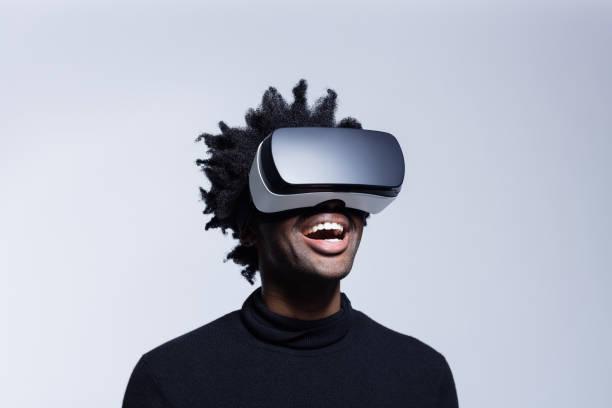Virtual Reality (VR) is revolutionizing the way we interact with digital spaces, creating immersive experiences unlike any other. With VR, realms of fantasy and reality merge, offering a unique sensory journey. Whether it’s gaming, education, or virtual tourism, the possibilities are endless as VR technology continues to evolve. Enthusiasts and novices alike find themselves captivated by the potential and capabilities of this transformative medium.
“`html
The Mechanics of Virtual Reality: How It Works
Virtual Reality (VR) is a groundbreaking technology that simulates an environment for users, making them feel like they’re part of it. This is achieved by creating an immersive digital experience that interacts with multiple senses. But how does VR work? Let’s break it down.
At the core of VR technology are the sensory displays. These take the form of headsets that cover the user’s eyes and ears, often accompanied by hand controllers. The displays track the user’s head movements in real-time, synchronizing the visual and audio inputs to give the sensation of being in a different world.
The visuals are rendered on two small screens placed in front of the user’s eyes. These screens present slightly different images to each eye, creating a stereoscopic 3D effect. Coupled with 360-degree video capabilities, users can look around and explore the virtual world just as they would in real life.
Furthermore, interactive elements in VR environments play a crucial role. Through haptic feedback, which transmits sensations of touch and movement from the virtual world, users can “feel” their interactions. This provides a layer of depth and enhances the overall realistic experience.
Exploring VR Applications in Modern Industries
VR technology is not limited to gaming and entertainment. Various industries have adopted VR to enhance and transform different aspects of their operations. Here are some notable applications:
Healthcare
In healthcare, VR is utilized for training and simulation. Surgeons can practice complex procedures in a risk-free environment, while therapists use VR for patient rehabilitation. These applications improve outcomes by providing a safe space for learning and recovery.
Education
Education benefits from VR by engaging students more effectively. VR transports learners to historical events or scientific simulations, bringing subjects to life. This immersive learning experience fosters deeper understanding and retention of information.
Military
The military employs VR for training purposes, simulating combat situations and strategic planning. This helps soldiers practice tactics and decision-making skills without the dangers of real-world training scenarios.
Real Estate
Real estate agents use VR to offer virtual tours of properties. Potential buyers can experience a home from anywhere, saving time and reaching a global audience. This technology enhances the buyer’s experience, making the decision process more efficient.
The Future of VR: What Lies Ahead?
As VR technology continues to evolve, its potential seems limitless. Future advancements may bring about even more immersive and realistic experiences. Here are some prospects for the future of VR:
Improved Hardware
Manufacturers are continuously improving VR headsets. Future models promise higher resolution displays, reduced latency, and greater comfort—making longer sessions more feasible and enjoyable.
Expansion in Social VR
Social VR will likely grow, allowing people to meet, interact, and collaborate in virtual spaces. The potential for global connectivity and co-working environments is vast, making remote interactions more engaging.
Integration with AI
Combining AI with VR can create smarter, more interactive virtual environments. AI can personalize experiences, anticipating user needs and adapting the virtual world accordingly.
Increased Accessibility
Advancements in affordability of VR devices will likely lead to widespread adoption. As costs decrease, more industries and individuals will have access, integrating VR into everyday life.
Challenges and Considerations in Virtual Reality
Despite its potential, VR technology faces significant challenges. Addressing these issues is crucial for continued growth and adoption:
Hardware Limitations
The current VR hardware can be cumbersome and expensive. Users often report discomfort and motion sickness after prolonged use. Improvements in design and technology are needed to overcome these hurdles.
Content Availability
The success of VR hinges on the availability of engaging content. Developers need to create diverse, high-quality experiences across different genres and fields to attract a larger audience.
Privacy and Security
In an ever-connected virtual world, concerns about privacy and data security arise. Developers and companies must implement robust security measures to protect user information and experiences.
Ethical Considerations
As VR blurs the line between virtual and reality, ethical concerns emerge around addiction and the impact on mental health. Understanding and managing these effects is critical to ensuring VR is a tool for enhancement, not harm.
Planning to scale your business with cutting-edge digital strategies? Visit 50us Digital Marketing Agency for expert solutions.
- Boost your online presence with our digital marketing expertise.
- Transform your website, e-commerce, and blogs into powerful tools.
- Drive results with tailored traffic management and SEO strategies.
Stay ahead in a competitive market with our comprehensive services. Follow our journey and updates on Instagram: @agency50usdigital. Let us empower your business to reach new heights. Your success is our mission!
“`
















